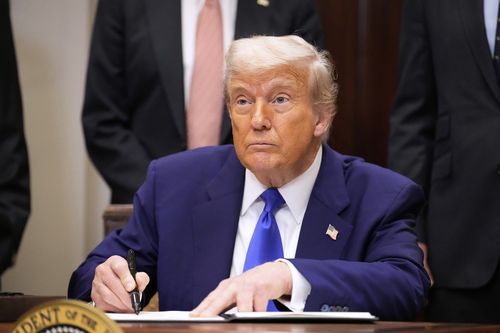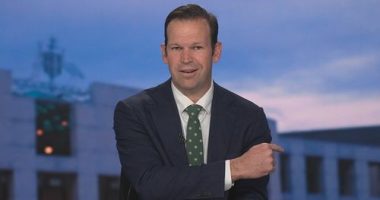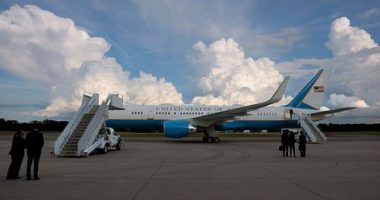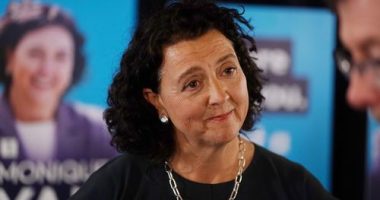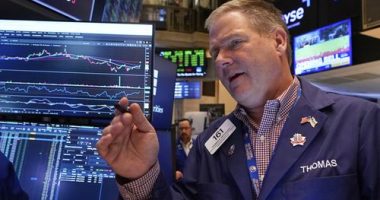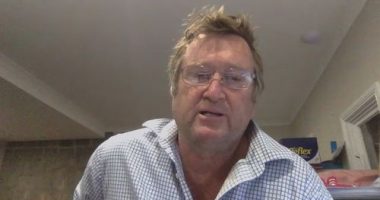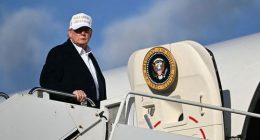Share this @internewscast.com
He signed a sweeping executive order setting a 30-day deadline for drugmakers to electively lower the cost of prescription drugs in the US or face new limits down the road over what the US government would pay.
The order calls on the health department, led by Robert F Kennedy Jr, to broker new price tags for drugs over the next month.

If deals are not reached, Kennedy will be tasked with developing a new rule that ties the price the US pays for medications to lower prices paid by other countries.
“We’re going to equalise,” Trump said during a Monday morning (early Tuesday AEST) press conference.Â
“We’re all going to pay the same. We’re going to pay what Europe pays.”
The European Union was undoubtedly the president’s main target but he also called out price differences between the UK and Australia.
“Whoever is paying the lowest price, we will look at that price when we will say that’s the price we’re going to pay. Most favoured nation is what it is,” Trump said.
“One breast cancer drug costs Americans over $16,000 per bottle, but the same drug from the same factory, manufactured by the same company, is one-sixth that price in Australia and one-tenth that price in Sweden. One-tenth for the identical product.

“A common asthma drug costs almost $500 here in America, but costs less than $40 in the United Kingdom.”
It’s unclear what â if any â impact the Republican president’s executive order will have on millions of Americans who have private health insurance. The federal government has the most power to shape the price it pays for drugs covered by Medicare and Medicaid.
The impact on prices in Australia and other countries is even less clear but Trump insisted the goal was to force other developed nations to foot more of the bill for research and development of drugs.
“Europe is going to have to pay a little bit more. The rest of the world is going to have to pay a little bit more, and America is going to pay a lot less,” he said.
The US has taken issue with the Pharmaceutical Benefits Scheme in the past and Trump has continuously threatened to introduce tariffs on pharmaceuticals, one of Australia’s largest exports to the US, worth about $1.6 billion a year.
The latest move is not a tariff, nor would it have any direct impact on the PBS, which Prime Minister Anthony Albanese promised during the election campaign was off the table in any trade negotiations with the Trump Administration.

Top US drugmakers say Trump’s order is bad for patients
The US’ pharmaceutical lobby, which represents the top drugmakers, immediately pushed back against Trump’s order, calling it a “bad deal” for American patients. Drugmakers have long argued that any threats to their profits could impact the research they do to develop new drugs.
“Importing foreign prices from socialist countries would be a bad deal for American patients and workers,” Stephen J Ubl, the president and CEO of PhRMA, said in a statement.Â
“It would mean less treatments and cures and would jeopardize the hundreds of billions our member companies are planning to invest in America.”
Trump’s so-called “most favoured nation” approach to Medicare drug pricing has been controversial since he first tried to implement it during his first term. He signed a similar executive order in the final weeks of his presidency, which called for the US to only pay a lower price than other countries pay for some drugs â such as injectables or cancer drugs given through infusions â administered in a doctor’s office.
That narrow executive order faced hurdles, with a court order that blocked the rule from going into effect under President Joe Biden’s administration. The pharmaceutical industry argued that Trump’s 2020 attempt would give foreign governments the “upper hand” in deciding the value of medicines in the U.S.

Trump says other countries are to blame
Trump repeatedly defended pharmaceutical companies, instead blaming other countries for the high price Americans pay for drugs, during a wide-ranging speech at the White House on Monday.Â
The president was flanked by Kennedy, Centres for Medicare and Medicaid Services administrator Dr Mehmet Oz, Food and Drug Administration commissioner Dr Marty Makary and National Institutes of Health director Jay Bhattacharya.
He did, however, threaten the companies with federal investigations into their practices and opening up the US drug market to bring in more imported medications from other countries.

“The pharmaceutical companies make most of their profits from America,” Trump said.Â
“That’s not a good thing.”
– Reported with Associated Press.
